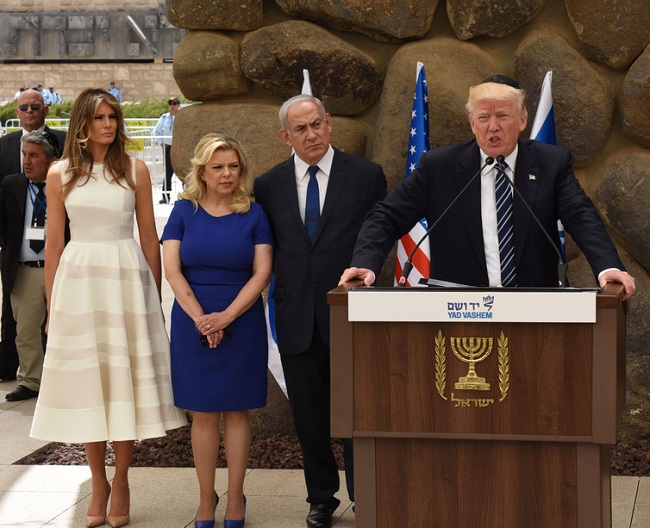Benjamin Netanyahu is a polarising figure to say the least, but few would deny that he’s an extremely talented and determined politician. That much is clear from just how long he has lasted in Israeli politics – an environment in which it’s notoriously difficult to survive, never mind thrive. Along with David Ben-Gurion, he is the only Israeli prime minister to have served four terms, surpassing Ben-Gurion by being elected three times in a row. He now looks set to become the longest-serving prime minister in Israeli history.
Having led the right-wing Likud party since 2005 and acting as a member of the Knesset as well as prime minister, he is undoubtedly the central force shaping his country’s domestic and foreign policy. Netanyahu is known for being relentless and unwavering in pursuit of his goals, which are defined by both his party’s nationalist ideology and his personal preoccupation with security.
On that particular front, he was clearly shaped by his own experiences as a member of the Israeli Defence Forces (IDF): he took part in multiple operations with the special forces in the late 1960s and early 1970s, and fought in the 1967-1970 War of Attrition with Egypt and the 1973 Yom Kippur/October War.
But even in his unrelenting defence of what he considers Israel’s best interests, Netanyahu is a realist and an opportunist. As Israel’s Arab neighbours navigate the post-Arab Spring era with their interests upended and regional alignments shuffled, Netanyahu sees a chance to improve Israel’s standing in the Middle East and improve its relationships with its neighbours, especially the Palestinians.
Netanyahu has a very clear view of what he believes to be in Israel’s best interests, and his recent policies are most certainly designed to be maximise the benefits to Israel with little concern for others: the rapid expansion of Israeli settlements in the West Bank, for instance.
But ever the realist, Netanyahu knows that his window of opportunity won’t last forever – and since about 2014, Netanyahu has stepped up the pace at which he has been trying to change the facts on the ground in Israel’s favour. Thanks to a particular set of circumstances roiling the outside world, he is doing with bolstered confidence, embracing what might once have been considered highly ambitious policies.
Who’s paying attention?
Netanyahu has lately supported the IDF’s forays into the Syrian conflict, including intermittent airstrikes on suspected arms convoys destined for Hezbollah. He also gave the go-ahead for the largest single settlement expansion in the West Bank for over two decades, with plans for 8,000 new homes – this on the back of plans to build 15,000 new settlement homes in East Jerusalem.
Not long ago, this would have been a major flashpoint. For much of the past 20 years, Israel’s policies towards the Palestinians have come under a great deal of scrutiny in Arab and Western circles alike, with Israeli governments finding it ever harder to claim the moral high ground. But since 2011, the abject depths of barbarity and depravity in Syria, Iraq and Yemen have set the bar lower than many observers thought it would ever go. In such a climate, even Netanyahu’s most questionable policies towards the Palestinians simply don’t raise other leaders’ eyebrows as they once did.
Israel, then, enjoys lighter international scrutiny and only token pressure from its distracted neighbours, while also benefiting from the Trump administration’s subtle but clear green light for some of its more controversial projects.
Throughout the latest and now irretrievably moribund peace process, key leaders’ policies and decisions at seminal moments have narrowed the scope of Israel’s relations not just with the Palestinians, but with the Middle East at large. The region is now living through just such a moment, and Netanyahu’s presence at the helm might just have irreversibly limited the potential for a peaceful and secure future for all concerned.
It’s not all good news for the Israeli government. As ever, the Middle East’s instability presents Israel with challenges as well as opportunities. Most pressingly, the post-2011 disintegration of Syria and Yemen raises the prospect that simmering rivalries could turn into direct military confrontations, especially between Iran and Saudi Arabia. As the stand-off between Qatar and several Saudi-led Gulf states goes to show, the calculus has changed a lot in just a few short years – and understanding this new landscape is the key to understanding Netanyahu’s domestic and foreign priorities.
For now, then, Netanyahu is making the most of his opportunity to secure his goals. But in the long term, Israel has to remember that the Middle Eastern community at large – however fractured – seems determined to exclude it. Whatever lies ahead in Syria, Iraq or elsewhere, that fundamental reality is unlikely to change.
So while some of Netanyahu’s more extravagant or controversial actions might fly under the radar for now, their consequences for Israel’s future might be greater than even he, with all his experience and pragmatism, can anticipate.
Article from The Conversation bySenior Lecturer in International Relations, Nottingham Trent University.

